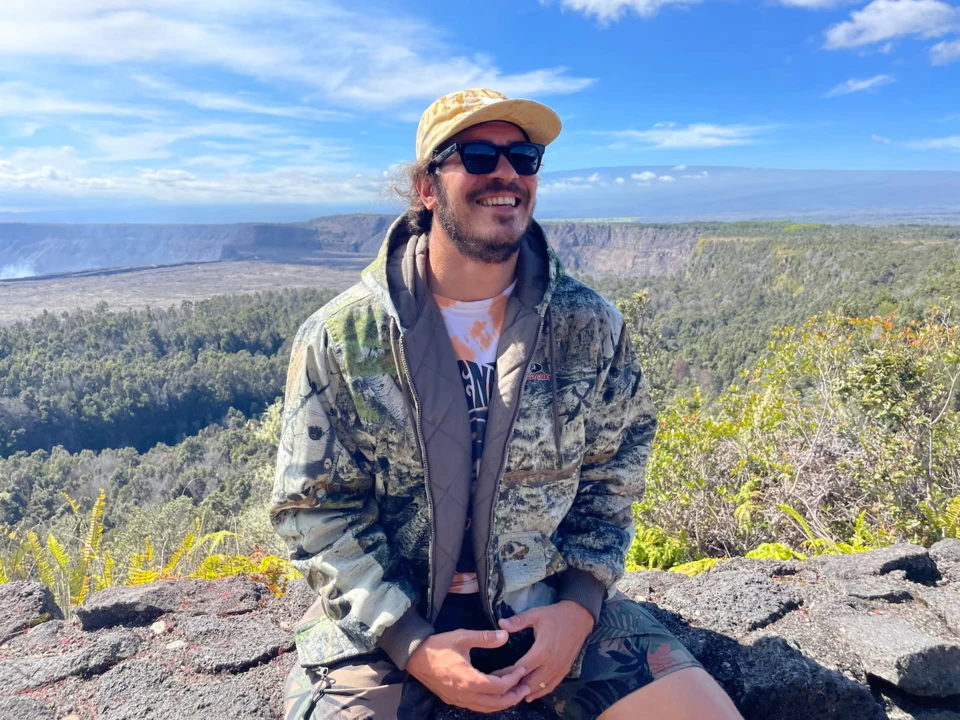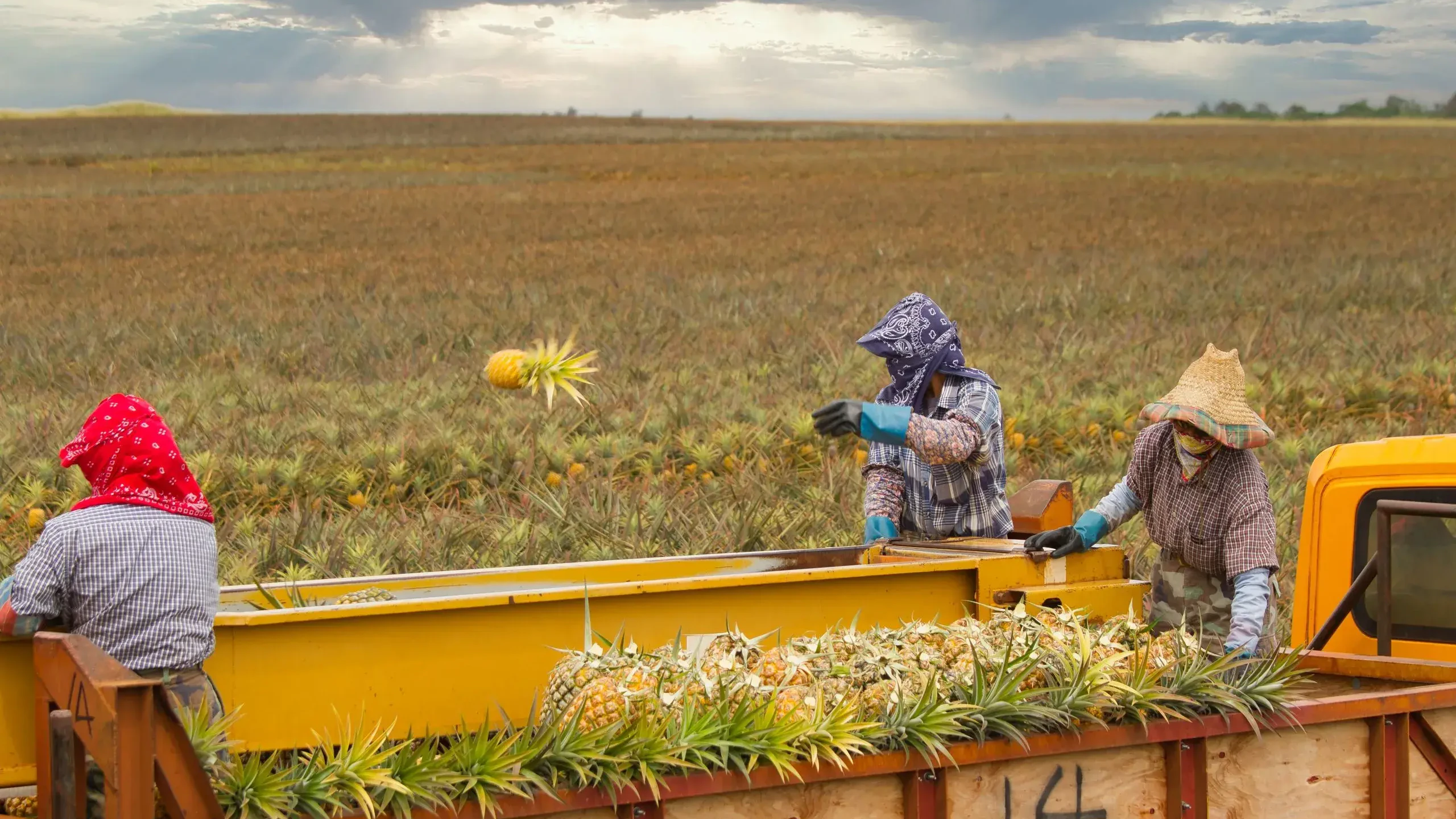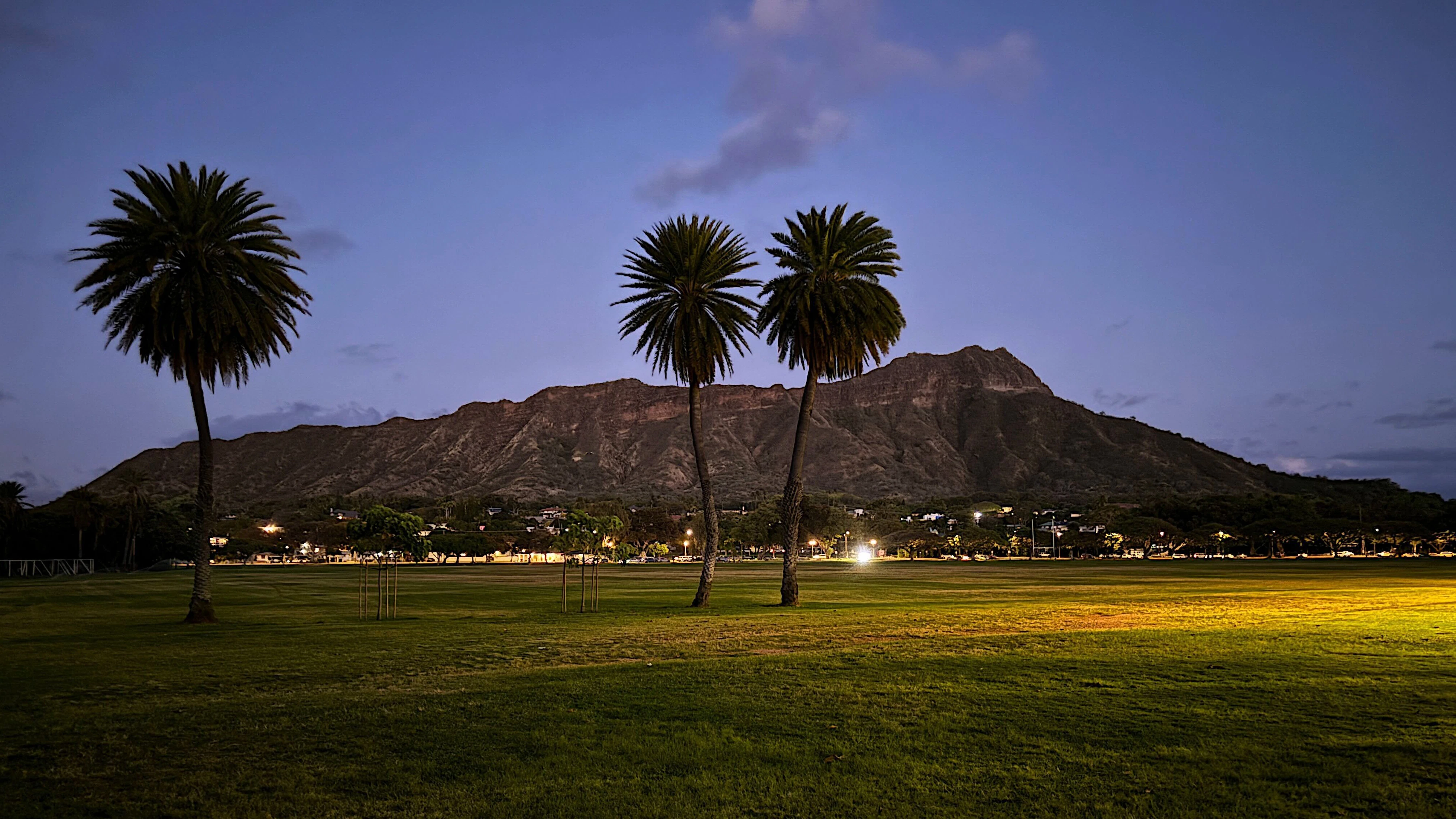Keolu Fox, 38, is one of the faces behind biotechnology research company Variant Bio and, notably, the only Kanaka Maoli among its top advisors.
A human geneticist, Fox helped build the startup, which has been developing genomic drugs in Seattle since 2018. As in other areas of his life, he’s driven in this work to further the lāhui in a field that lacks Pasifika representation.
“We don’t need people to keep their heads down,” said Fox, who lives in San Diego, California. “We need leadership. We need resources. We need aloha.”
It’s crucial to Fox to know history: the world’s, his people’s, his own.
The ʻohana of his mother, Laurie Makanani Fox, hails from Pololū Valley in Kohala on Hawaiʻi Island. Descendants of Kānaka Maoli and Portuguese immigrants, they moved from Kapaʻau to Hilo and then to Kāneʻohe, Oʻahu. Laurie and her sisters grew up dancing hula under Kumu Kauʻi Zuttermeister.
On Fox’s paternal side, his grandfather was a Belgian Sephardic Jew, and his grandmother was Prussian from Berlin, Germany. They met in a concentration camp in Mechelen, Belgium. Fox’s father, Uziel Awret, grew up in an artists’ colony in Safed, Israel.
Awret, a quantum physicist, met Laurie, a language student, at Georgetown University in Washington, D.C. Fox, an only child, was born in California’s San Francisco Bay Area. He recalls moving around the U.S. throughout his adolescence when money was tight.
As part of the diaspora, “you become comfortable on the move,” Fox said. “You kind of become addicted – just like our ancestors – to voyaging, moving, trading spaces.”
He spent first grade in Alaska, the expansive state where his aunty and role model, Leslie Kaulehua Fox-Leyva, had resettled. Fox remembers seeing snow for the first time there.
Then, they moved to Hawaiʻi. Young Fox stayed active playing sports: basketball, surfing, martial arts, soccer. As a child, he wanted to grow up and become a postman so he could be outside and kōkua people.
While in Hawaiʻi he also learned about his culture and history – formally in Kamehameha Schools’ Explorations program and informally from the ʻāina and moana. “We are scientists, Hawaiian people,” Fox said.
The family moved back to California before making the jump from West Coast to East Coast. Fox doesn’t feel that he fit the mold of a budding academic, though he excelled at science, history and math. He graduated in 2004 from Eleanor Roosevelt High School in Greenbelt, Maryland.
Fox intended to play college soccer at the University of Maryland, but as a freshman, his lack of focus meant that Plan A didn’t work out. Instead, Plan B developed: Fox found himself in a biological anthropology class led by Dr. Fatimah Jackson, the biologist and anthropologist who taught him about human genetic variation.
As a Black woman, she empowered Fox to believe he could build a career in the field. She invited him to her lab. When Fox walked in and heard the smooth sounds of The Jackson 5 playing, he pictured himself working there.
Soon, he was starting to get research experience under his belt. Fox was hit with the realization that the future of preventative medicine wasn’t including marginalized communities, and there was zero research on Oceania. His honors research project focused on triple negative breast cancer and minority health.
“I was like a pit bull on a bone at that point,” Fox said.
When he graduated in 2008 with a bachelor’s degree in biological anthropology and archaeology, Fox already had an opportunity lined up: He would complete a post-baccalaureate fellowship at the National Institutes of Health’s National Human Genome Research Institute from 2008 to 2010 in Bethesda, Maryland. One of those years was spent as a research fellow in The Center for Research on Genomics and Global Health.
Fox was then faced with a choice: medical school or graduate school. He ultimately felt pulled to the University of Washington in Seattle, Washington, because of the groundbreaking leaders in the field that were based there.
From 2010 to 2016, he earned a Ph.D. in genome sciences. That span was a whirlwind of publishing scientific papers and code, writing grants and going to conferences. Despite the intensity, “it was easy to work hard there,” Fox said.
He met his partner, Riley Taitingfong, at a grocery store in Seattle. They share Pasifika roots as Riley is CHamoru, with maternal ancestors from the Canary Islands. Their careers also have some overlap: Riley is a scientist and researcher specializing in environmental justice, Indigenous self-determination and emerging technologies.
After Fox completed his Ph.D., Riley was heading to the University of California, San Diego (UCSD) to complete her doctorate. Fox landed a postdoctoral fellowship at UCSD from 2016 to 2019. He was extended after two years as an assistant professor and is now an associate professor. His work there includes involvement in various programs such as the Department of Anthropology, the Global Health Program, the Climate Action Lab and the Indigenous Futures Lab.
Fox and Riley welcomed their daughter, Hōkūpaʻa, in 2024.
Other big changes have been afoot. In addition to his work at Variant Bio, Fox earned tenure at UCSD this summer. He also has projects underway around Moananuiākea. “It’s just like the culmination of so much hard work,” Fox said.
He’d love to build an independent research institute on Hawaiʻi Island that prioritizes the needs and ambitions of the lāhui. With a keiki in his life and his mother back on Hawaiʻi Island, Fox yearns to one day resettle in Hawaiʻi.
“If I do everything right, I’ll be moving back to the Big Island as soon as possible,” he said.
This article is reprinted with permission. Written by Megan Ulu-Lani Boyanton“Faces of the Diaspora: Bringing ‘Ike Kūpuna to Genome Sciences," OHA's Ka Wai Ola newspaper, November 2025, Vol. 42 No. 11. Read more at kawaiola.news.
For the latest news of Hawai‘i, sign up here for our free Daily Edition newsletter.





